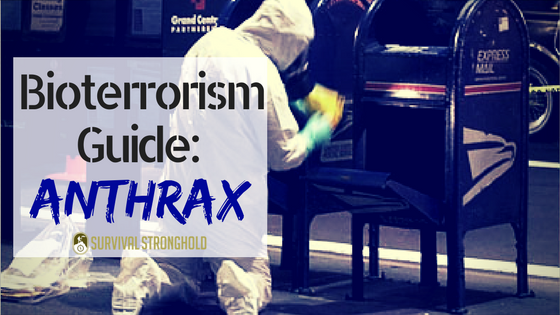I recently posted a quick guide to understanding biohazard and chemical threats, and I wanted to dig a little deeper into bioterrorism agents.
Wikipedia defines “bioterrorism” as follows:
Bioterrorism is terrorism involving the intentional release or dissemination of biological agents. These agents are bacteria, viruses, or toxins, and may be in a naturally occurring or a human-modified form.
The CDC has three different graduated categories for bioterrorism agents. These classifications, A, B, and C, are distinguished by the severity of the disease and how easily they can dissipate through a population.
Category A is the most dangerous, and the diseases classified as such is what I want to discuss today. You’ve probably heard of a lot of them, either on the news or in action movies or spy thrillers.
I will be doing a series on these agents, beginning with one that you are probably familiar with, if you’re old enough to remember 9/11:
Anthrax
Anthrax, a disease caused by contact with the spores of the Bacillus anthracis bacterium, is probably the most commonly known on this list, at least for millennials.
It can be contracted “naturally”, by infected animals or eating the meat of infected animals, but it is best known for the way it has been weaponized. Because it can be ground up into a fine powder (which is what was done in 2001, sent through the mail), it is categorized as particularly dangerous.
If exposed to anthrax, symptoms usually are apparent within a week. There are two types of anthrax. The cutaneous, or skin, form of anthrax, appears as a blister with a black center. The gastrointestinal form of anthrax has symptoms such as bloody diarrhea, and uncomfortable stomach craps and nausea.
Anthrax that is inhaled, on the other hand, can resemble a simple cold or flu at first, and continue to progress in severity if not treated right away. Anthrax can be treated with a heavy antibiotic regimen as well as a vaccine, but it is important to treat it right away to avoid fatality.
For those who have been exposed but have not yet shown symptoms, antibiotics are also recommended, as well as the vaccine. Ciprofloxacin and doxycycline are two common antibiotics that might be used to prevent anthrax.
If you suspect you have been exposed to anthrax, seek medical help immediately.
Bioterrorism is one of the reasons you should prepare yourself and your household with plenty of face masks, antibiotics, plastic gloves, antibacterial soap, plastic sheeting, etc.
Stay tuned for more on bioterrorism agents.
If you liked this, you might also enjoy…
All Survival Preparedness Boils Down to This…
Is Doomsday Finally Upon Us?
Have You Considered Going Paleo? Read This First…


